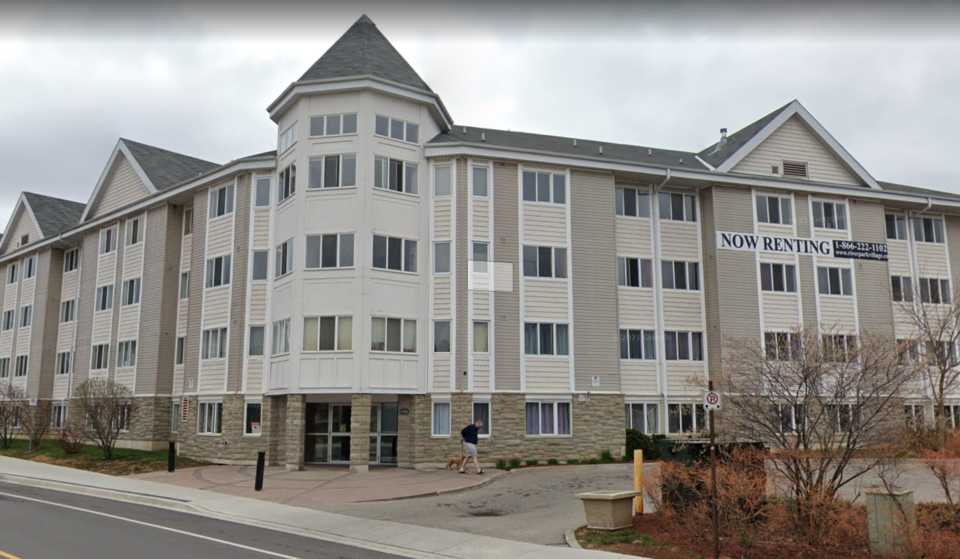A plan to add two storeys and 40 more units to a downtown Galt apartment complex won the approval of the Ontario Land Tribunal last week, a year after city council voted against the proposal over fears it will add to downtown Galt's parking woes.
Council argued that adding to the four storey building at 151 Main St. would create a “parking nightmare” in the core with spillover tenant and visitor parking impacting homes on neighbouring Harris Street.
The building known as River Park Village Corp. currently contains 78 apartments. The owner was seeking changes to the the city's official plan and several amendments to its zoning bylaw to add the additional floors.
City staff had recommended approving the application last April but council denied the request citing neighbourhood concerns over the height of the building, lack of affordable units and the fact no additional parking or amenity space were part of the plan.
The owner appealed that decision in January.
Current zoning for the property allows a maximum density of 250 units per hectare and a maximum building height of 15 metres, whereas the proposed height of the addition would make the building 22.5 metres and the additional units would require a density increase to 385 units per hectare.
The proposal also defies the current zoning bylaw for amenities. No additional amenity space will be part of the addition, but current zoning requires a minimum of 20 square metres per dwelling unit for one bedroom units and 30 square metres for two bedroom units.
But the biggest issue in the minds of councillors who opposed the plan was parking.
Current zoning requires one space per unit, including visitor parking. The owner wants to add 40 units with no additional parking despite an existing deficit of 35 spaces.
Two planners who testified at last week’s hearing “supported and demonstrated the proposed parking ratio is acceptable and is further augmented with the subject lands being so close in proximity to public transit and future higher order transit.”
“I would dispute any planner who says that,” countered Coun. Jan Liggett when told of the decision Wednesday.
She said the future public transit they’re talking about, namely the LRT extension to Cambridge, is 10 to 15 years from being a reality and contingent on provincial funding.
The fact the apartments at 151 Main St. were already short on parking means the existing problems will be exacerbated in the meantime once the additional units are built.
With Central Public School nearby, Liggett says safety in the area is already a concern with parents picking up and dropping off their children on nearby Harris Street.
She feels the problems the city is dealing with now with parking in the core are only going to get worse as intensification continues and parking requirements shrink along proposed and existing transit routes.
The only solution she sees working with some of these developments is a car stacking system that allows more vehicles to be parked in a smaller area.
The decision, rendered April 22 by OLT member Mario Russo, states the tribunal “is satisfied that the scale and built form proposed by the Appellant on the subject lands are appropriate for the area and compatible with the existing and evolving context of the area.”
Liggett, whose ward covers this development, said the OLT’s decision is another example of why she is joining about 70 other municipalities across the province in putting forward a motion to dissolve the province’s quasi-judicial authority for resolving land-use disputes.
Liggett’s motion asking the province to do away with the OLT will return for a council vote on May 17.



